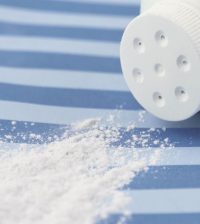- Could You Spot the Silent Symptoms of Stress?
- Gas Stoves Could Leave Your Lungs Vulnerable to Nitrogen Dioxide
- Key Therapy Equally Effective for Women, Men With Narrowed Leg Arteries
- Doctors Describe Texas Dairy Farm Worker’s Case of Bird Flu
- Does Preschool Boost Kids’ Long-Term Academic Success? Study Finds Mixed Results
- AI Might Spot Rare Diseases in Patients Years Earlier
- An Orangutan Healed Himself With Medicinal Plant
- Quit-Smoking Meds Not Working for You? Try Upping the Dose
- Fewer Americans Are Suffering Most Dangerous Form of Heart Attack
- Even Skipping Meat for One Meal Helps Liver Disease Patients
New Treatment Approved for Soft-Tissue Cancers

Lartruvo (olaratumab) has been approved by the U.S. Food and Drug Administration to treat adults with certain soft-tissue sarcomas, cancers that develop in areas such as the muscles, fat, blood vessels and tendons.
Lartruvo has been sanctioned for use with the chemotherapy drug doxorubicin in cases that cannot be treated with radiation or surgery, the FDA said Wednesday in a news release.
More than 12,000 new cases of soft-tissue sarcoma are projected to be diagnosed this year and nearly 5,000 people are likely to die from the disease, the agency said, citing estimates from the U.S. National Cancer Institute.
Lartruvo is designed to block cell receptors that fuel tumor growth, the FDA said. The drug was evaluated in clinical trials involving 133 people with soft-tissue carcinomas. Average survival among people who took Lartruvo and doxorubicin was 8.2 months, compared with 4.4 months among people who took doxorubicin alone.
Potential side effects identified during the studies included harm to a developing fetus, low blood pressure, fever, chills, nausea, fatigue, low white blood cell count and musculoskeletal pain.
Lartruvo’s maker, Indianapolis-based Eli Lilly and Company, is conducting a larger study to further evaluate the drug’s effectiveness among numerous types of soft-tissue sarcoma, the agency said.
More information
To learn more, visit the Food and Drug Administration.
Source: HealthDay
Copyright © 2024 HealthDay. All rights reserved.










